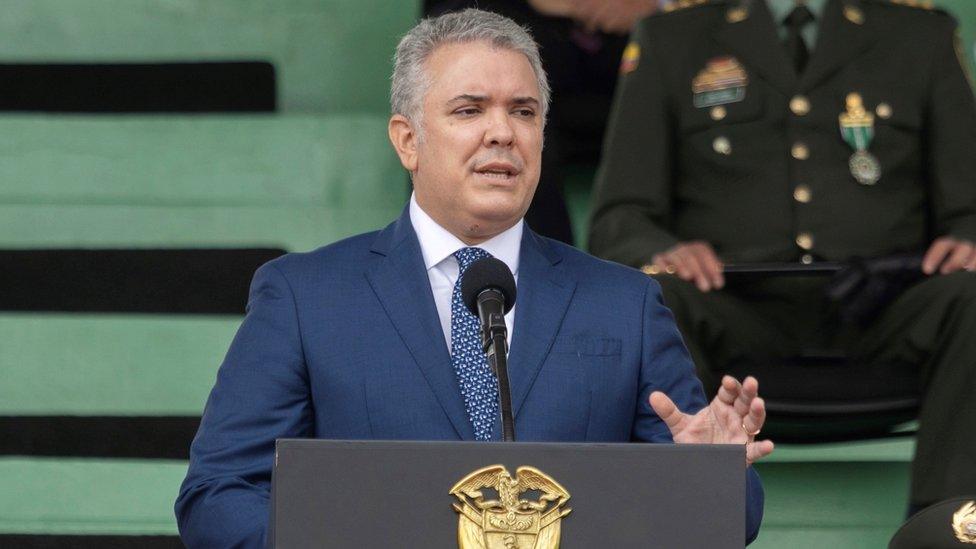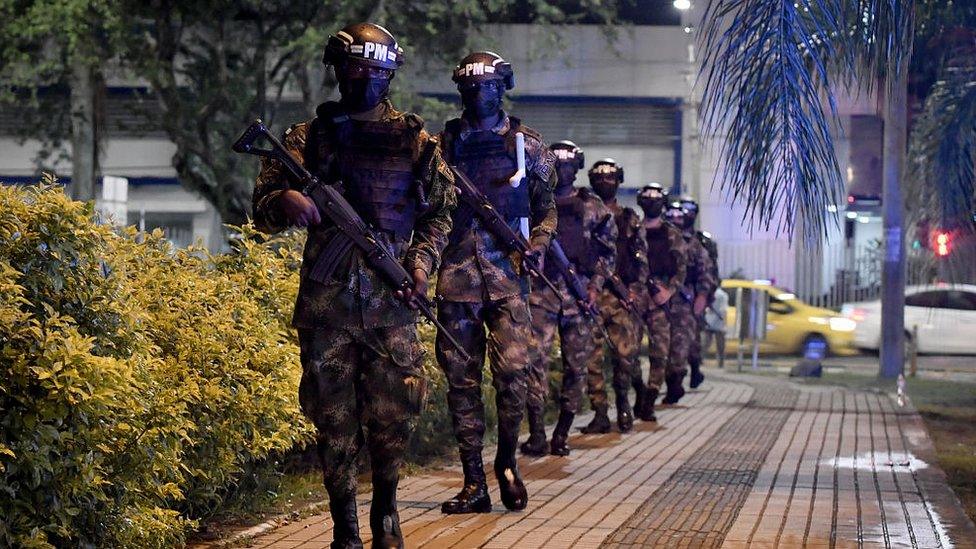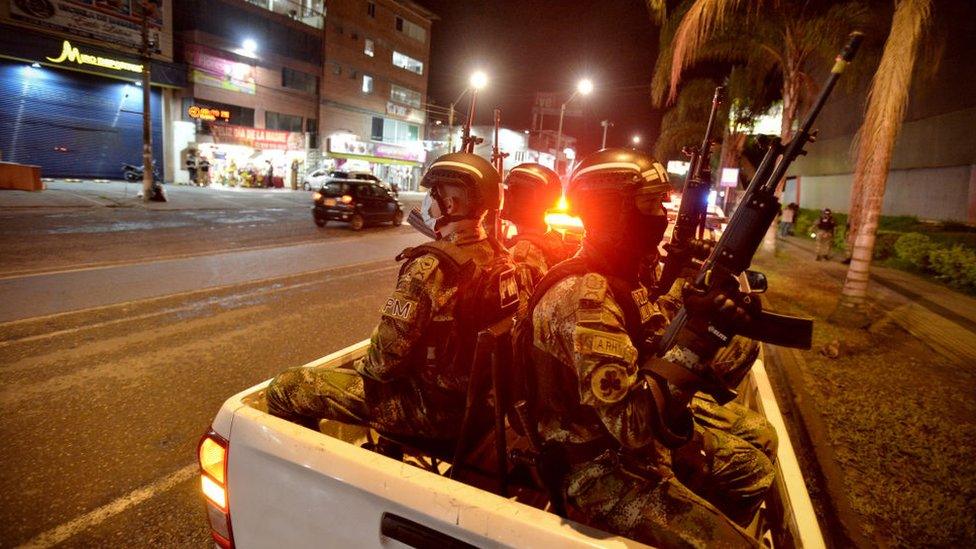Colombia unrest: President Duque pledges police reform after protests
- Published

Colombian President Iván Duque has been criticised for refusing to condemn police brutality against protesters
Colombian President Iván Duque has vowed to modernise the country's police and increase oversight of officers.
It comes after weeks of street protests and widespread allegations of human rights abuses.
More than 60 people have died in clashes with security forces, with at least three officers facing murder charges.
The violence has sparked international outcry and calls for an independent investigation into the deaths.
Last week negotiations stalled between President Duque's government and an umbrella group of protesters called the National Strike Committee, but talks are expected to resume on Sunday.
In a statement, the president said he would ask Congress to approve measures to modernise the police, with the creation of a new human rights directorate and more officer training. A new complaints system would also be set up, along with disciplinary standards for officers.
The law will be proposed on the first day of the next legislative session in July, said Mr Duque.
He added that the government was also working on a law to establish a criteria for the legitimate use of force by police.
Protesters clashed with police in Popayan and Medellin after weeks of unrest in Colombia
The president's announcement comes as a delegation from the Inter-American Commission on Human Rights (IACHR) arrives in Colombia to assess the recent unrest.
Demonstrations began on 28 April against a now-withdrawn set of tax reforms. But the protests have escalated into a broad anti-government movement, with hundreds of thousands of people taking to the streets, and demands being made for reform of health and education, among other issues.
The protests have been held in defiance of a court order, which ruled that they should be postponed due to high incidences of coronavirus in Colombia. As a result, there has been a heavy police presence during demonstrations, and security forces have had deadly clashes with protesters - with most of the violence focused in the city of Cali.

Colombia's military has previously been called in to assist police during protests in Cali
Authorities say at least 61 people, mostly civilians, have died during the demonstrations. But NGO Human Rights Watch has cited "credible reports" of 67.
Protesters have called on President Duque to denounce the use of excessive force by police. But the president has previously called on his political opponents to condemn the dozens of roadblocks erected by protesters around the country, which he blames for hampering the economy and causing the deaths of two babies trapped in ambulances.
Last week Michelle Bachelet, the UN's human rights chief expressed concern at violence in Cali, and said that "all those who are reportedly involved" should be held accountable.
Related topics
- Published30 May 2021
